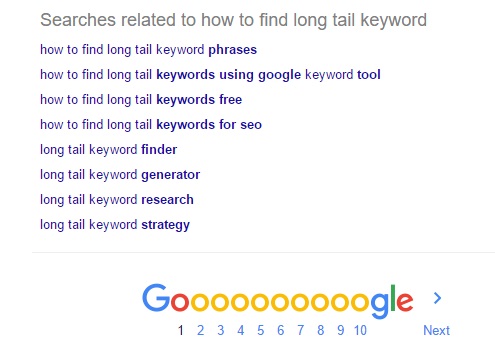

Then come the keywords "organic”, “composition”, “palm oil". The intention behind the word "Nutella" is a recipe and obviously a recipe of "homemade nutella". In this case, in our example, here are the keyword suggestions: Once the intent is defined, you can then continue to play with auto-completion to find other phrases related to the same keyword niche. Google Suggest can help you to know if users searching for "Nutella." are more interested in: a recipe, the number of calories, its composition, etc. Let's say you want to write a blog post about Nutella. Structuring the article by determining the user's research intention Since suggestions are algorithmically determined based on factors such as search volume and popularity, you can use them for your keyword research and especially to define the search intent (what is the user who types this keyword really looking for?). Unfortunately, these are collateral damages that are difficult to predict because they depend entirely on Internet users' searches. In 2012, the wife of the former German president, Bettina Wulff, sued Google for associating her name with "escort" or "prostitute" in its search suggestions. The auto-completion system of Google Suggest can also have some negative consequences, especially on the private life of some public people. This can sometimes have side effects, especially on ambiguous terms. All the terms related to these themes do not appear in the suggestions. Indeed, Google imposes very strict rules concerning pornography, copyright or apology of violence. However, this very powerful tool has limitations.

Suggestions are defined according to the terms most frequently used with the keyword typed by the user.

When a user types letters into the Google search bar, the form sends the data to Google servers, which anticipate how the query might proceed. This system, which is similar to auto-complete, provides a fast and intuitive user experience. An Internet user who performs the search can click on any keyword in the auto-fill list and immediately see the search results page. On average, there are 3 to 5 suggestions of keywords, but sometimes it can be a dozen. Its powerful algorithm is able to suggest keywords related to the typed words. Google Suggest, introduced in 2007, has become in a few years a central element of the Google search.


 0 kommentar(er)
0 kommentar(er)
